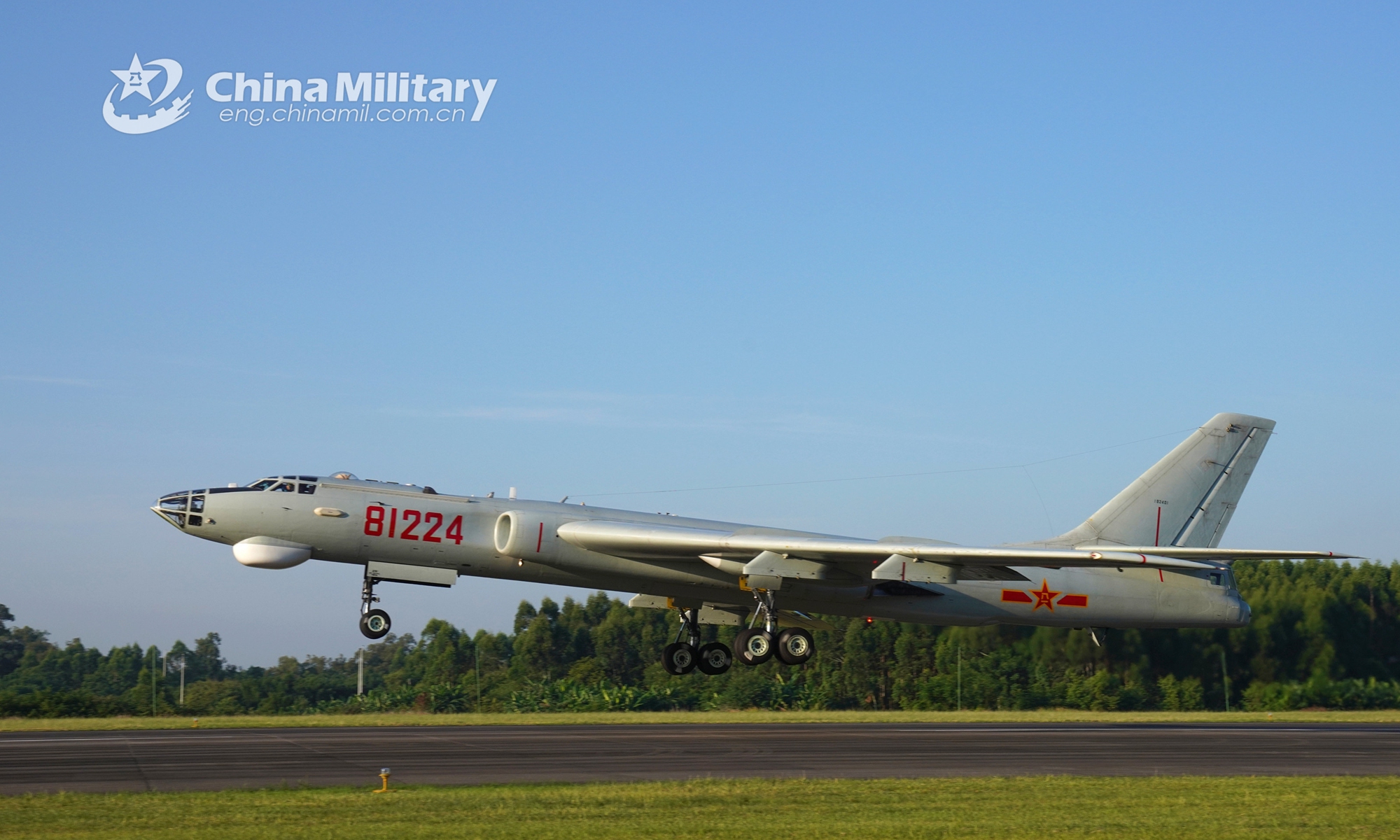PLA forces hold landing drills amid US military provocations
By Liu Xuanzun Source: Global Times Published: 2020/8/9 18:18:18

A H-6 strategic bomber attached to a bomber regiment of the naval aviation under the PLA Southern Theater Command takes off for a recent realistic flight training exercise. (eng.chinamil.com.cn/Photo by Gao Hongwei)
Ground and naval forces of the Chinese People's Liberation Army (PLA) have been on concentrated schedules in amphibious landing and maritime exercises in the past weeks and will continue to do so in the weeks to come, at a time when the US has been frequently conducting provocative military activities near the island of Taiwan and in the South China Sea.
The PLA drills are a show of capability and determination, and the US should be warned and should not make dangerous moves to avoid misjudgments that neither side would like to see, analysts said on Sunday.
Ground troops attached to the PLA 74th Group Army, which is based in South China's Guangdong Province, recently conducted a beach assault in a mock confrontation between offensive and defensive camps in South China's Hainan Province, China Central Television (CCTV) reported Saturday.
A brigade boarded landing ships at dusk, started sailing at night and arrived at the frontline in the early morning of the next day. With the help of saturated artillery fire from multiple rocket launcher systems, the landing troops successfully seized the beach, CCTV reported.
The drills showed that "the PLA has confidence and determination to safeguard national sovereignty and security interests," the report said.
The Marine Corps under the PLA Navy recently also held a sea-crossing landing exercise in Guangdong, which featured amphibious assault vehicles and assault boats, CCTV said in a separate report last week.
From Tuesday to Thursday and from August 16 to 17, two maritime live-fire drills will be held in waters off Zhoushan, East China's Zhejiang Province, according to two navigation restriction notices released by China's Maritime Safety Administration on Thursday.
China's first Type 075 amphibious assault ship reportedly embarked on its maiden voyage from Shanghai on Wednesday, and attack helicopters of the PLA Army also recently conducted a series of sea-crossing assault drills on a Navy warship in waters off East China's Fujian Province.
The PLA drills come amid the increasingly frequent provocative military activities made by the US near the island of Taiwan and in waters in the South China Sea.
The USS Ronald Reagan aircraft carrier was spotted in the East China Sea by commercial satellite on Saturday, and a US P-8A anti-submarine patrol aircraft was also found conducting reconnaissance in the southern part of the Taiwan Straits, according to a Weibo post by Beijing-based think tank the South China Sea Strategic Situation Probing Initiative (SCSPI) on Sunday.
In the first half of this year alone, the US sent military aircraft to the South China Sea more than 2,000 times, Chinese State Councilor and Foreign Minister Wang Yi revealed during his interview with the Xinhua News Agency on Wednesday.
SCSPI director Hu Bo told the Global Times in a recent interview that "given the current overall relations between China and the US, if any maritime or aerial accident takes place, the friction could not likely be effectively managed and could result in an escalation. Therefore, the uncertain factors over the Chinese and US militaries' interactions in the South China Sea are large, and the risks are becoming higher."
With the military exercises, China is demonstrating its determination and capability in safeguarding national sovereignty and territorial integrity, and they can also serve as a strong response and deterrence to US military provocations, a military expert who asked not to be identified told the Global Times on Sunday.
In a Thursday phone talk between Chinese State Councilor and Minister of National Defense Wei Fenghe and US Secretary of Defense Mark Esper, Wei urged the US to improve the management and control of maritime risks and avoid taking dangerous moves that may escalate the situation. Esper said the two militaries should maintain dialogue and consultation to manage crises, avoid misjudgments and reduce risks, Xinhua reported.
Posted in: MILITARY